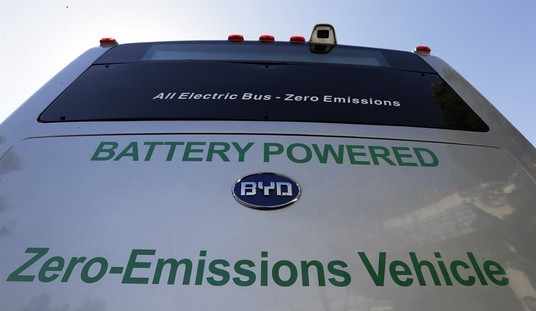Indeed he is, and you don’t have to work for the RNC’s press department to think so. Take two minutes and read Karl’s round-up of election demographics analyzed today by various lefties and righties. In sum, the Democrats’ worries about dramatic shifts in turnout — especially among younger voters, minorities, and seniors — proved to be baseless if you use 2006, the year they took back the House, as a yardstick. Turnout was just fine. The problem, as Democrat William Galston explains to the faithful at TNR, is that the country’s become much more conservative:
Here we reach the nub of the matter: The ideological composition of the electorate shifted dramatically. In 2006, those who voted were 32 percent conservative, 47 percent moderate, and 20 percent liberal. In 2010, by contrast, conservatives had risen to 41 percent of the total and moderates declined to 39 percent, while liberals remained constant at 20 percent. And because, in today’s polarized politics, liberals vote almost exclusively for Democrats and conservatives for Republicans, the ideological shift matters a lot.
To complete the argument, there’s one more step: Did independents shift toward Republicans because they had become significantly more conservative between 2006 and 2010? Fortunately we don’t have to speculate about this. According to the Pew Research Center, conservatives as a share of total Independents rose from 29 percent in 2006 to 36 percent in 2010. Gallup finds exactly the same thing: The conservative share rose from 28 percent to 36 percent while moderates declined from 46 percent to 41 percent.
This shift is part of a broader trend: Over the past two decades, moderates have trended down as share of the total electorate while conservatives have gone up.
But wait, what about the poor economy? Not a determinative factor, says Sean Trende, who ran the numbers of Tuesday’s results in order to isolate statistically significant variables and concluded that it wasn’t an anti-incumbent election but rather a decidedly anti-Democratic one:
It didn’t matter whether the challenger had experience, or if he raised a lot of money. Neither of those variables is statistically significant.
This doesn’t mean that this election was all about the economy. Far from it. As Jon Chait pointed out, a statistical model based only on economic/structural facts suggested that Democrats should lose only about 45 seats. This is only one model and it suggested the worst-case scenario for Democrats; other “structural” models put the number in the 20s and 30s. In other words, the Democrats’ losses were about 20 to 40 seats in excess of what we would expect from the effects of the economy and back-to-back wave elections. Remember, Reagan’s Republicans encountered similar economic headwinds in 1982, and they lost 26 seats, a baker’s dozen of which can be directly chalked up to the intervening redistricting.
Rather, it suggests that voters in swing- and Republican-leaning districts decided that they disliked the Democrats so much that it didn’t matter whether a candidate supported the President’s health care bill or the stimulus. They voted against them anyway.
That last bit feels counterintuitive: If, as Galston suggests, the election was about ideology, shouldn’t a Blue Dog who voted against Obama’s agenda have been safe? Apparently not, for two reasons I think: (1) The GOP did a bang-up job of nationalizing the election, which is why even centrist Dems in Georgia had to resort to running anti-Pelosi ads, and (2) precisely because Obama “accomplished” so much over the past two years, my hunch is that swing voters went to the polls in many (but not all) cases thinking they had to apply the brakes irrespective of how their individual Democratic rep might have voted. Even if he/she voted no on O-Care, he/she might turn around and vote yes on amnesty, cap-and-trade, or whatever else The One is ready to unleash from Pandora’s Box. The only way to tie his hands securely was to nuke as many Democratic incumbents as possible and make sure there was no more majority to enable him. That’s the message he’s not getting.
Exit quotation from Boehner on the forthcoming Slurpee summit at the White House: “I don’t know about a slurpee. How about a glass of merlot?”








Join the conversation as a VIP Member